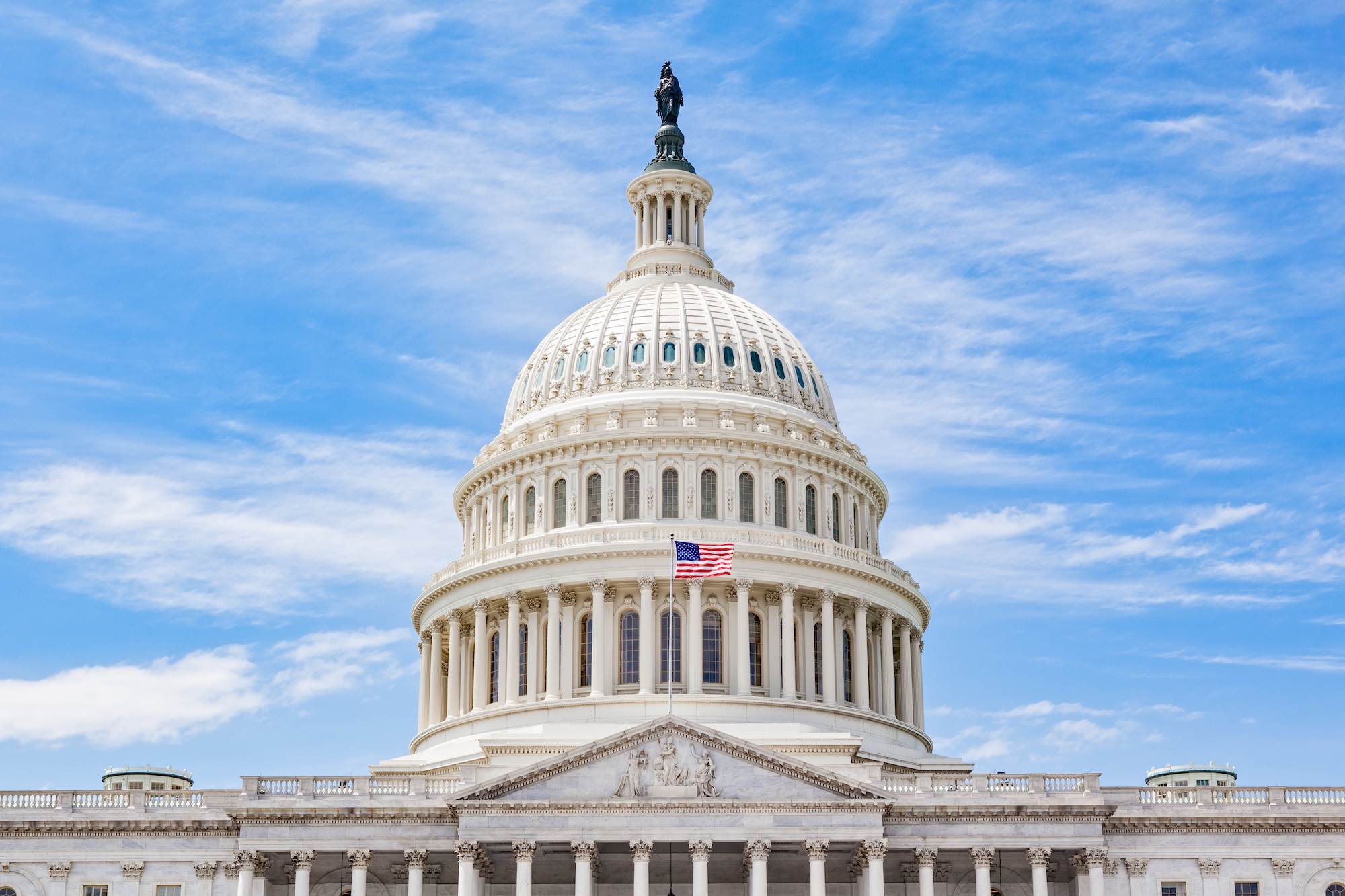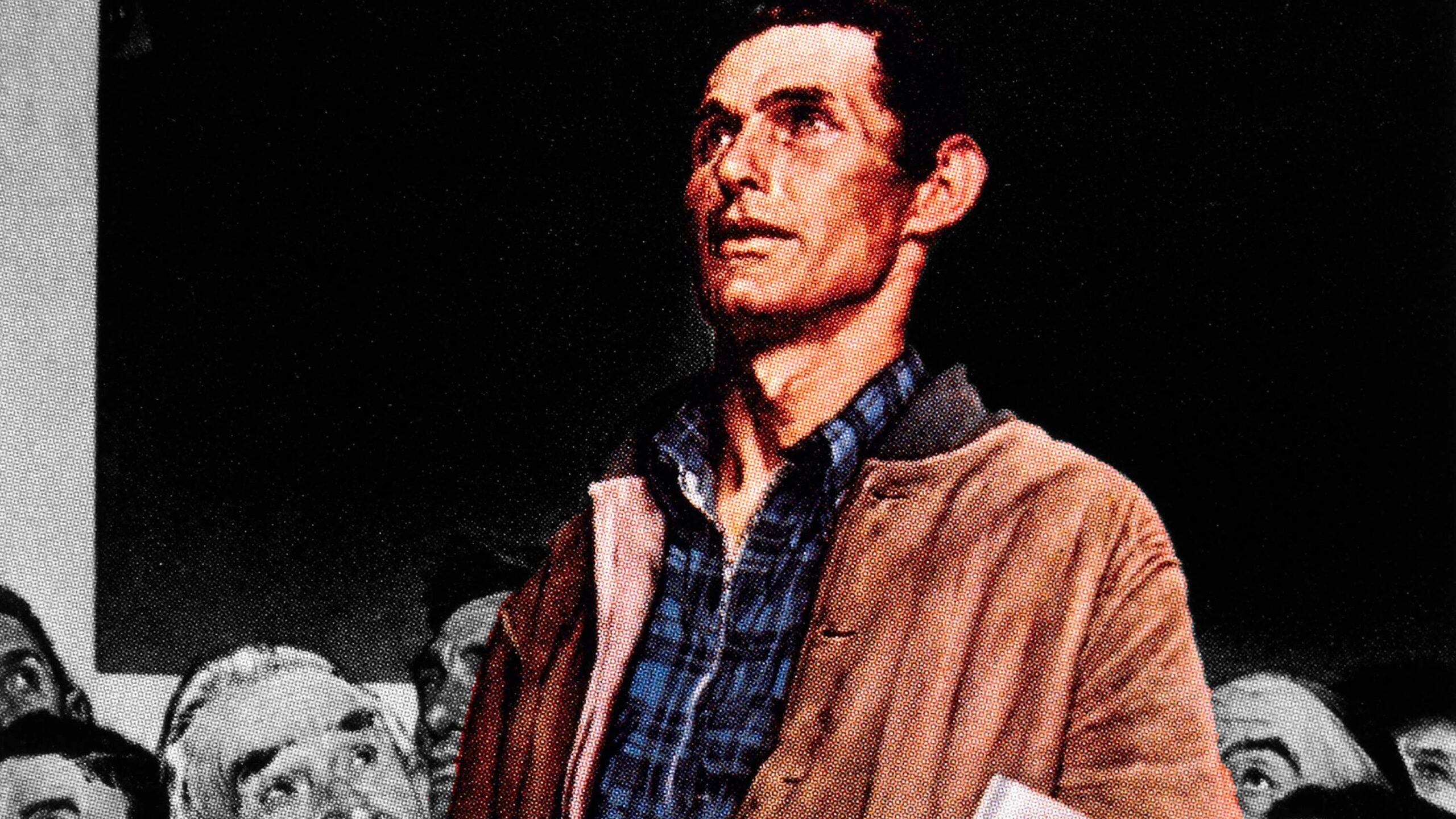

An immigrant reflects on making America great again.
RECOMMENDED READING
I am an immigrant to the United States who came to attend graduate school in the nation’s capital. I was trained in the neoliberal economic curriculum that underpinned the so-called “Washington Consensus.” I am culturally and socially open, believing that every person deserves the same starting position in society, that legal immigration benefits the country, and that church and state need to stay separated. By profession I am a finance executive, with a solid record of excelling at firms dependent on free trade and unrestrained capital flows for their success. While a proud naturalized American, I now live and work in Asia, as an active practitioner of globalization myself.
All that should make me a picture-perfect liberal Democrat or, at best, a “socially liberal and fiscally conservative” worshipper at the Church of Reaganomics. I am not. Perhaps because I lived through the hope and excitement of early post-Soviet reform in my native Belarus, only to see it come crashing down, I am sensitive to a similar pattern unfolding in my adopted homeland, where a thriving nation built upon inspiring ideals seems well along the way to forsaking them and falling into rapid decay.
I believe the neopopulism now gaining steam with American conservatives is our nation’s best hope. The market fundamentalists have criticized the movement for what they see as its pessimism, nostalgia, and grievance. I see something different. In its harsh assessment of recent economic performance and the well-being of workers, its skepticism of high levels of trade and immigration, and its desire to defend families and communities from assault by financial capitalism, I see an honesty all too lacking among elites, a commitment to taking seriously the concerns of common citizens, and an approach to both politics and economics that harkens back to the American model that made this country the envy of the world. What it still needs is the unifying glue of a renewed commitment to national greatness.
Perhaps because I lived through the hope and excitement of early post-Soviet reform in my native Belarus, only to see it come crashing down, I am sensitive to a similar pattern unfolding in my adopted homeland, where a thriving nation built upon inspiring ideals seems well along the way to forsaking them and falling into rapid decay.
* * *
Like so many 20-somethings from all over the world in the 1990s, I came to the United States to study, having won a scholarship to attend the Johns Hopkins School of Advanced International Studies (SAIS). Already, as I was leaving for Washington in the summer of 1996, Belarus was becoming first among the former Soviet nations to turn its back on the democratic future it had been promised. Elected in the nation’s first and last free elections on an anti-corruption platform, an energetic young president quickly began dismantling the fledgling institutions of the democratic republic, producing in their place an intolerant autocracy with elements of a police state in just two years’ time. That process culminated in November 1996 in a de facto coup d’etat, rewriting of the constitution, and mass arrests of the opposition. I had been an opposition activist back home and, facing certain persecution if I returned, I asked for and was granted political asylum here in the United States.
Becoming an American was not just a matter of convenience or a means of escape for me. I had been working with U.S. organizations and government agencies since 1993 and shared a close affinity with their ideals. My experience after arriving in Washington only reaffirmed my belief in America as a superior form of political and economic organization. I recognized problems as well (D.C. at the time illustrated well the crisis in inner cities), but America was clearly unique—an actual “shining city on the hill.” It was founded on principles of democracy, equality, and open debate. It was able to integrate a plurality of views, interests, and agendas into a productive whole.
My experience after arriving in Washington only reaffirmed my belief in America as a superior form of political and economic organization.
In particular, I was impressed by the high standard of objectivity in American media at the time. In the Soviet Union, Lenin had taught that “all media are partisan,” from which it followed that they should drop any pretense of objectivity and use their power to promote their preferred partisan agenda without apology. By comparison, leading U.S. publications adhered quite scrupulously to fact-checking, neutral reporting, and investigative integrity. Economic prosperity unparalleled in human history derived from an inquisitive, applied scientific mind, coupled with free enterprise. A vast middle class was both the source and beneficiary of that strength, with material abundance and economic security widespread. On the international stage, the United States had become the sole superpower, not by threat and conquest, but by leveraging the very ideals of its own political structure, the appeal of its popular culture, and the economic influence it had fostered through the range of post–World War II institutions that it hosted.
My happiness and pride in becoming an American was not, however, to last long. Within a decade of ascending to this peak, the world’s greatest nation began exhibiting dangerous signs of decline. The very strengths that had defined American greatness—in my eyes, anyway—had seemingly been abandoned. The Florida recount gave way to a White House where many believed the vice president was really in charge, which began promoting preemptive war and believed democracy could be constructed out of thin air. Financial rather than technological innovation drove the economy and led predictably to a collapse, in the midst of which Governor Sarah Palin was placed on a major presidential ticket. The ensuing Great Recession gave rise not to reform but to Tea Party and Occupy Wall Street movements that wanted, well, does anyone know?
Within a decade of ascending to this peak, the world’s greatest nation began exhibiting dangerous signs of decline. The very strengths that had defined American greatness—in my eyes, anyway—had seemingly been abandoned.
So quickly, norms of civil debate, press objectivity, economic opportunity, and international leadership—all of which I was perhaps less inclined than most to take for granted—vanished. The economic philosophy that I so admired, combining healthy individualism with respect for the commons, gave way to the sort of oligarchic enrichment that would have been more familiar in the former Soviet republics. In both the corporate world and popular culture, artificially fueled stock-market booms promoted a view of capitalism as a form of legitimate gambling. After I was transferred to a work assignment in Asia, removed from the daily surroundings of the nation in decay, seeing it during visits home was all the more shocking—in the ever-widening girths of the people, aging infrastructure, personal acquaintances falling victim to opioid abuse.
* * *
This unwelcome transformation was the result of a doctrinaire mindset that focused narrowly on self-interest and self-satisfaction. It began with the productive emergence of economic neoliberalism in the 1970s as a response to the problems of that time—excess centralization, high marginal tax rates, large corporations dedicated to their managers’ empire-building projects. These rather un-American, somewhat socialist features of the late New Deal era discouraged efficiency, productivity, and innovation. Reform oriented toward restoring the more traditional traits of individual enterprise, limited government, local decision-making, and nimble competition were needed. The neoliberal thesis also came with a moral justification: Rewarding hard work, risk taking, and visionary minds would lead to better outcomes for not only the hard workers, risk takers, and visionaries, but also for the nation as a whole.
The framework, championed by President Ronald Reagan, reinvigorated the economy, reenergized the society, and helped win the Cold War along the way. It became so dominant that the New Democrats adopted it, too, and President Bill Clinton continued its pursuit. But as often happens in politics, a consensus transformed into a cult.
The framework, championed by President Ronald Reagan, reinvigorated the economy, reenergized the society, and helped win the Cold War along the way. It became so dominant that the New Democrats adopted it, too, and President Bill Clinton continued its pursuit. But as often happens in politics, a consensus transformed into a cult.
By 1996, when I was studying economics at SAIS, our courses relied upon their own inner logic. The subjunctive ruled. Phrases such as “would not have done so,” “could not have happened,” or “would have been competed away” were pervasive. The real-world consequences, good and bad, of the new economic paradigm received no critical examination. Trends already underway beneath the gleaming façade were not visible to the economics student.
When a logically consistent set of principles buttressed by a strong moral claim takes hold, a society changes. For most of capitalism’s history, the figure of the entrepreneur, business owner, or capitalist was viewed with suspicion. He was seen as innovative and productive, yes, but also selfish and often exploitative. Not in 1990s America, where, by the start of the first Internet boom, the entrepreneur became an idealized figure of worship, eclipsing previous icons such as the soldier, detective, or special government agent. An individualism anchored in faith that pursuing one’s own wealth and happiness would somehow serve the common good, had solidified for capitalists, managers, and consumers alike.
An individualism anchored in faith that pursuing one’s own wealth and happiness would somehow serve the common good, had solidified for capitalists, managers, and consumers alike.
But reality was very different from the story everyone was telling themselves. Contrary to capitalism’s basic premise, capitalists were busy building tools that separated returns from risk, keeping the former and socializing the latter. The managerial class, dislodged from their perches atop the conglomerates they had built, reemerged with new methods of self-enrichment: using equity-based compensation and stock buybacks to reward the juicing of short-term earnings growth, or leveraged buyouts to extract value back out of the firms while breaking them down. Savers became investors, investors became speculators. Credit got cheaper and cheaper and debt got higher and higher, a process fueled and celebrated by Federal Reserve chairs who believed they were applying neoliberal theory.
Culture drives economics, but the most fundamental economic ideas and trends also drive culture. The dot-com millionaires of the 1990s gave way to the reality TV of the 2000s—”Survivor” and, of course, “The Apprentice.” The game show’s quaint formula of each contestant doing his best, with one taking home the prize, gave way to vicious competitions in which victory required backstabbing and banishing rivals to stand alone at the end. Social media took the baton and fostered perhaps even more vicious forms of social competition. The speculative gambles of hedge funds and venture capital firms were brought to the masses in meme stocks trading on Robinhood and cryptocurrency exchanges divorced entirely from assets with real value. Now, sports gambling itself is ascending in the culture. In a late-stage bull market, most bears give up, no longer trusting their convictions, and join the buying spree in hopes of meeting their investment objectives. In a gambling, rent-seeking society, many people give up on productive pursuits—some chase the easy returns, others check out. The crypto frauds and the opioid deaths, the private equity moguls and the video-game addicts, are in many ways two sides of the same coin.
In a gambling, rent-seeking society, many people give up on productive pursuits—some chase the easy returns, others check out. The crypto frauds and the opioid deaths, the private equity moguls and the video-game addicts, are in many ways two sides of the same coin.
* * *
On Election Night in 2016, I was attending a board meeting in Singapore (12 hours ahead of New York, results rolled in all morning). We took a break from our PowerPoint slides and projected CNN’s live broadcast onto the screen. Everyone, Easterner and Westerner alike, watched with incredulity. By lunch, it was over. Board members walked in shock, silent and depressed, to the lunch buffet. I was the only one there—indeed, the only person in my broader Asian network—who was not surprised by the outcome.
Trying to find explanations for America’s decline, I had studied trade imbalances, deindustrialization, and the persistent mystery of the rich constantly borrowing from the poor. Observing Asian countries, I could see that similar problems were consciously avoided by their governments, at least by comparison. The elites in Japan, South Korea, and Singapore never subscribed to theories that accepted as inevitable, or dismissed as unimportant, the decimation of vast swathes of an economy, the hollowing out of communities, and the development of various social and physical maladies.
The elites in Japan, South Korea, and Singapore never subscribed to theories that accepted as inevitable, or dismissed as unimportant, the decimation of vast swathes of an economy, the hollowing out of communities, and the development of various social and physical maladies.
China is more complex, given its central leadership’s commitment to a totalitarian model and its regional elites’ penchant for direct plunder. But even the CCP knows it cannot hope to retain power if uncontrolled, ill-gotten wealth accumulation goes unchecked. American elites did not even notice a problem. A two-party system that had historically spanned and integrated a wide array of perspectives and managed competition among overlapping groups of elites had turned into a uniparty divided mainly by chosen conceit. The party of the workers became a party of the educated urban class and one segment of the financial oligarchy (Silicon Valley). The party of individual responsibility and traditional values became the party of multinational corporate interests and the other coast’s financial sector (Wall Street).
Trump’s victory was a natural consequence of this metastasizing failure, but not a treatment for it. Indeed, in my eyes, he exacerbated it. The GOP fell in line, while continuing with “Reaganesque” rhetoric now entirely devoid of meaning. Democrats were more comfortable viewing half their fellow citizens as degenerates than understanding what could have motivated them. No one seemed capable of, or even much interested in, halting the downward slide, let alone charting a course forward.
And then I found the neopopulists. Groups like American Compass began challenging the dysfunctional status quo and its narrative void, offering both acknowledgment and diagnosis of the decay, and taking seriously the reform that would be necessary for recovery.
And then I found the neopopulists. Groups like American Compass began challenging the dysfunctional status quo and its narrative void, offering both acknowledgment and diagnosis of the decay, and taking seriously the reform that would be necessary for recovery. In their work, I see what Epsilon Theory’s Ben Hunt calls a “narrative shift.” Dominant narratives are persistent and change rarely, but when they do, the shift can be dramatic and happen very quickly. For a narrative shift to occur, it is not enough to say, “I know that a persistent trade deficit is bad for the nation.” It is not even enough to say, “everybody knows that a persistent trade deficit is bad for the nation.” The idea must reach the point where, “everybody knows that everybody knows that a persistent trade deficit is bad for the nation.” When that happens, there is no return.
The new thinking about economics appears to be reaching that point: We must reorient the economy from the financialized model that encourages gambling to a productive one that encourages domestic investment and ensures fair distribution of gains. Part of the appeal is that this thinking has the potential to unite a very broad political coalition. But uniting people of diverse backgrounds, who arrive from very different political starting points, is hard. What is the message that can bring together traditional small-government Republicans, the “MAGA” core of Trump supporters, working-class former Democrats, and unexpected joiners like me?
* * *
We need a definition of American greatness that can be the shared goal of those who wish to “Make America Great Again” and those who strive for the “shining city on a hill.”
The crux of the issue is one of aspiration. A sharp critique and comprehensive agenda are all well and good, but what is the vision? We need a definition of American greatness that can be the shared goal of those who wish to “Make America Great Again” and those who strive for the “shining city on a hill.” Do we remain committed to the idea of American exceptionalism, or have we grown tired of leadership’s burdens and would prefer to be just another country within a Westphalian system unconcerned with the regimes of its participants? Do we wait for danger to materialize and threaten us directly, or do we view proactive engagement—if not preemptive war—as the safer course?
Thus far, we are settling into a more modest and passive stance. This is understandable. A nation that has been hollowing out its own economic, political, and cultural core can hardly aspire to shape global affairs. An economy built for highly leveraged gambling is not in a position to dominate global markets or provide an arsenal of democracy. Political leaders who seem eager to put each other in jail lack values worth promoting internationally, let alone the credibility to have influence. Withdrawal and introspection are an intuitive response.
We need to be more imaginative, more strategic, more ambitious. Being a good and great nation is an end unto itself; perhaps the one that elites, eager to be “citizens of the world,” most carelessly abandoned.
We need to be more imaginative, more strategic, more ambitious. Being a good and great nation is an end unto itself; perhaps the one that elites, eager to be “citizens of the world,” most carelessly abandoned. It also gives purpose to the sacrifices that will be necessary if we are to recover economically, and distinguishes our trajectory from that of nations in Europe that appear content to slowly fade into economic, cultural, and demographic obscurity while handing their future to the Chinese in return for a few more years of Volkswagen sales and a long-term supply of cheap trinkets.
An economic program that restores domestic industry, shifts risk back to the capital, spurs productivity gains for workers, unwinds financialization, and revitalizes communities nationwide will also be one that restores America’s ability to take a strong, positive leadership position in the world. If we can regain the delicate balance that our democratic republic requires, between respect for individual rights and protection of the commons, between liberty and responsibility, the extraordinary nation America had become when I first arrived can be its future as well.
Recommended Reading
The Edgerton Essays
Perspectives from the Working Class
How Republicans learnt to love bigger government
The era of “the era of big government is over” may itself now be over, writes Oren Cass in the Financial Times.
Enabling Families to Support Each Other
We need politicians to put families first and focus on taking care of us when hardship strikes, rather than taking care of those who are already doing just fine. Government should be about strengthening families to support each other.












